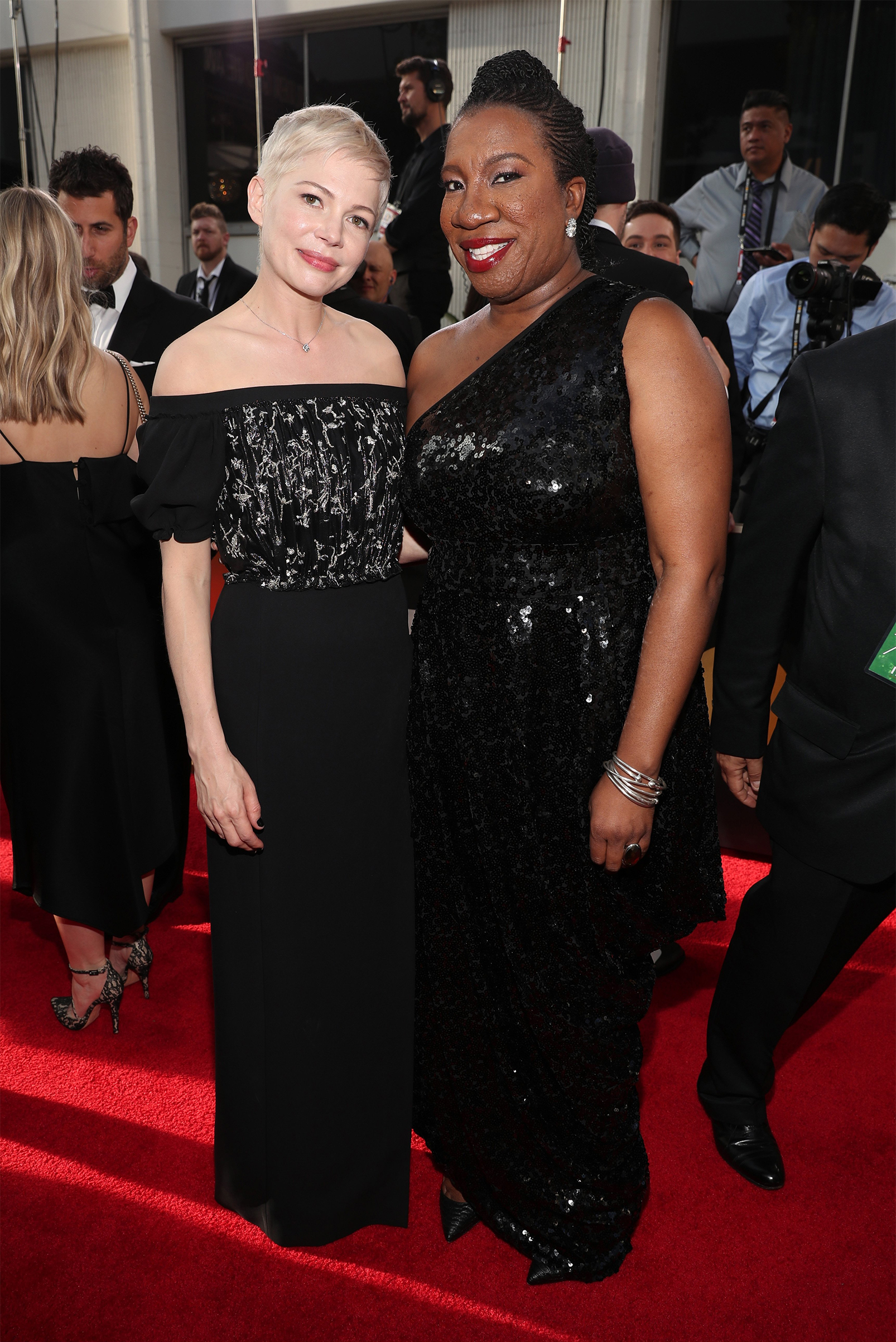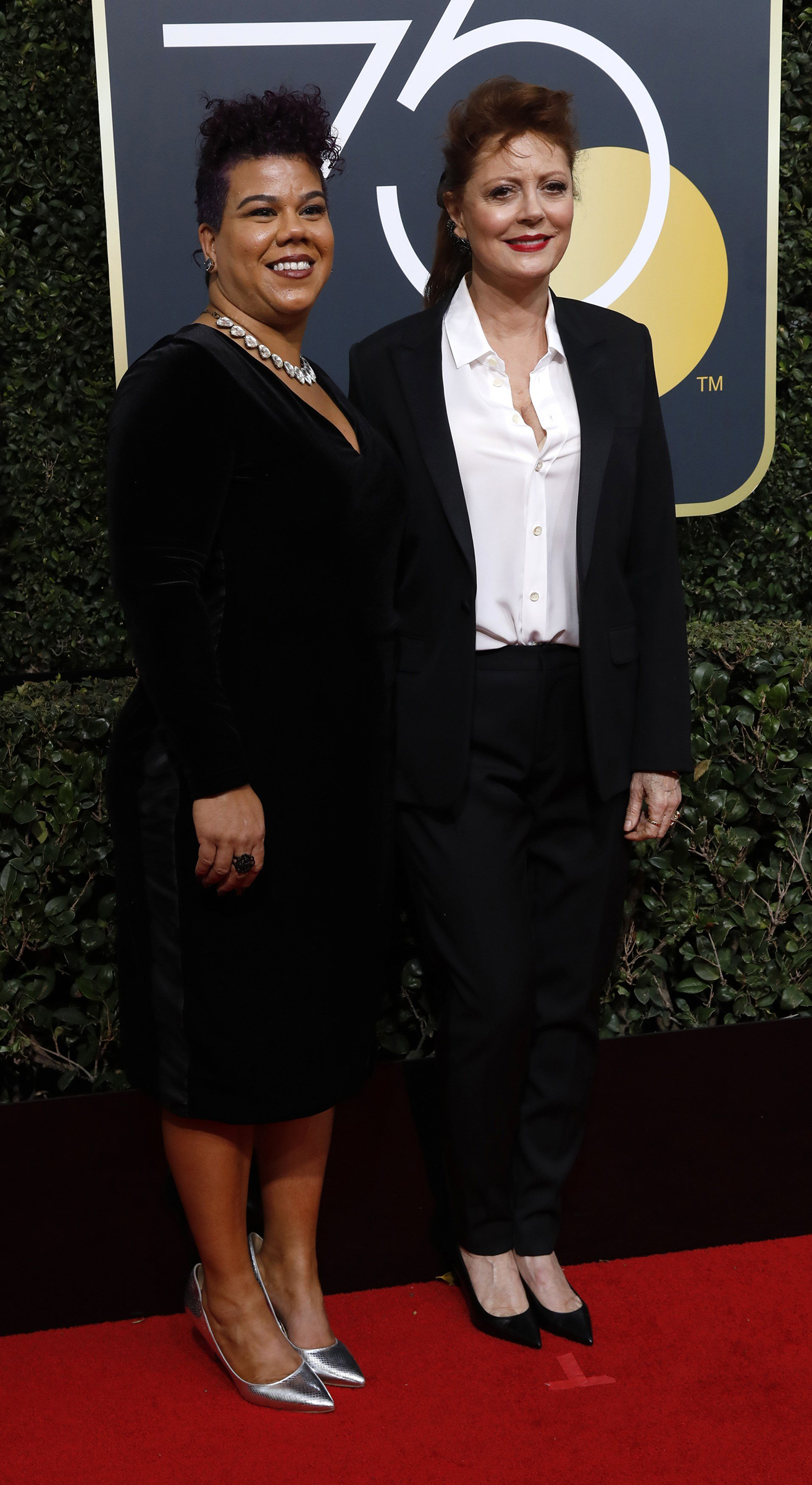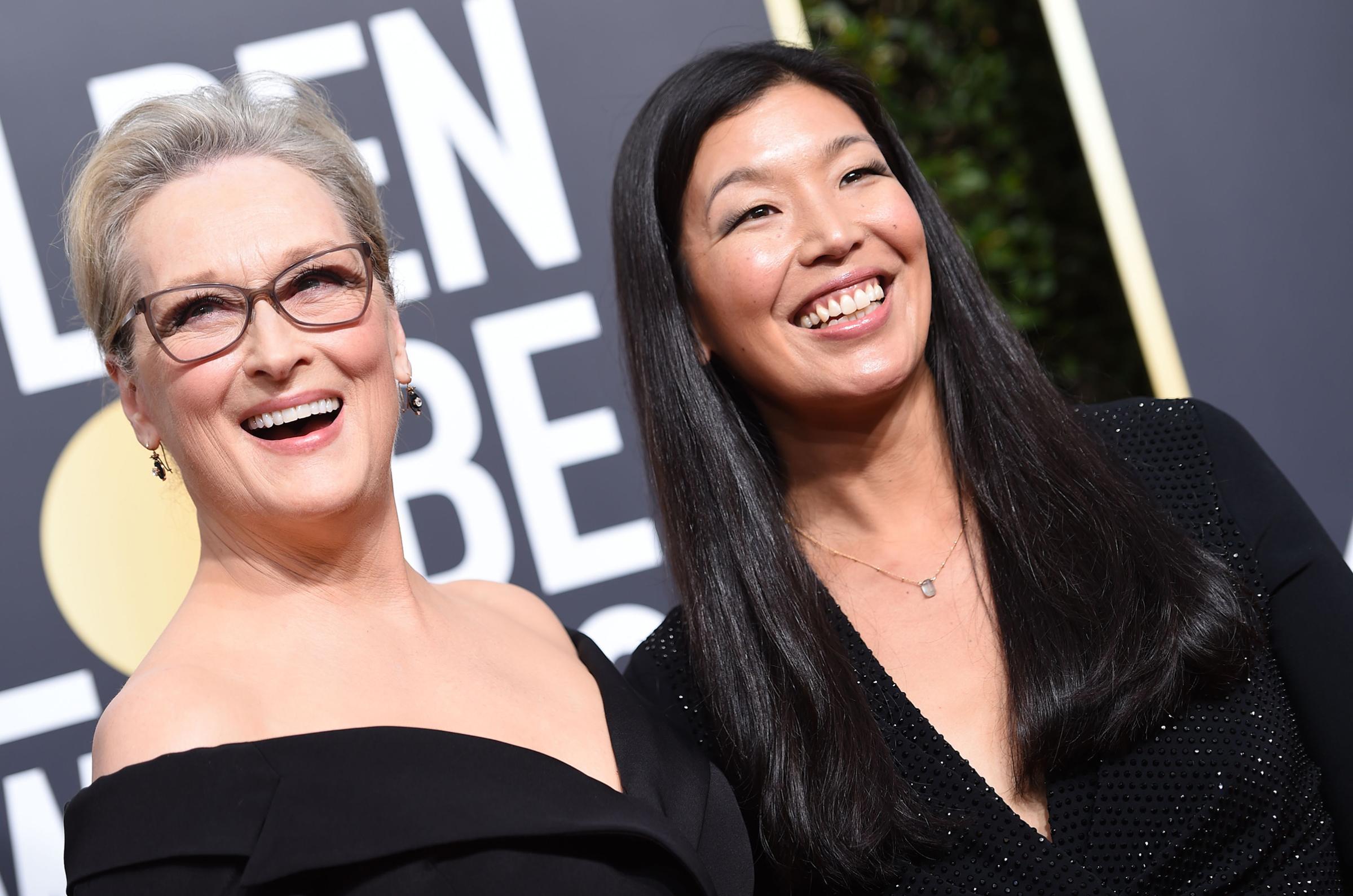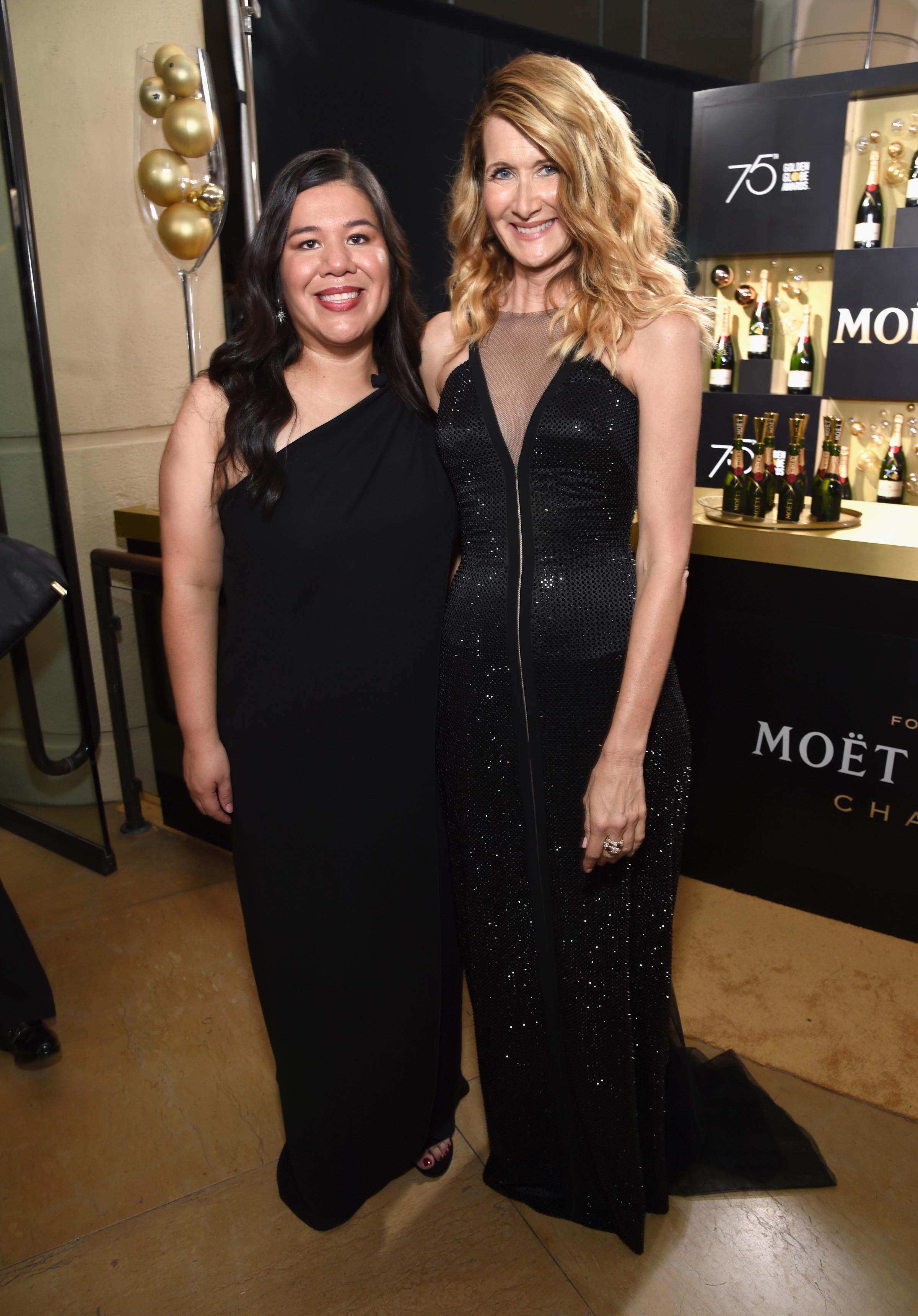The red carpet of the 75th Golden Globe Awards Sunday night was a sea of black gowns and tuxedos (and, in Alison Brie’s case, fabulous pants), as actors followed through on a pledge to wear the color to protest sexual harassment and assault in Hollywood. But a conscientious commitment to fashion, organized by the new organization Time’s Up, wasn’t the only difference from years past. This year, several actors brought activists as their guests, handing the microphone over when interviewers asked them about their decision to wear black.
Here’s a run-down of the eight activists who appeared on the red carpet Sunday night:
Tarana Burke

Burke, who accompanied Best Actress in a Drama nominee Michelle Williams, founded the #metoo movement in 2007 when she was working with young women of color who had experienced sexual violence. She is senior director of the nonprofit Girls for Gender Equity. Burke has also been an advocate of ensuring that the movement is intersectional and inclusive. “Sexual violence knows no race, class or gender, but the response to sexual violence absolutely does,” she told TIME last fall. “Until we change that, any advancement that we make in addressing this issue is going to be scarred by the fact that it wasn’t across the board.”
Rosa Clemente

Susan Sarandon, who was nominated for a Golden Globe for her performance in Feud: Bette and Joan, brought Celemente as her plus-one Sunday night. Clemente is a community organizer, political commentator and 2008 vice presidential candidate for the Green Party ticket. Among the issues Clemente focuses on are voter engagement and freedom for political prisoners.
Saru Jayaraman

Previous Golden Globe winner and host Amy Poehler arrived on the red carpet with Jayaraman, co-founder and co-director of Restaurant Opportunities Centers United and director of the University of California at Berkeley Food Labor Research Center. Jayaraman advocates for restaurant workers, fighting to raise wages and labor standards in the field.
Billie Jean King

First Emma Stone played King in Battle of the Sexes, then she received a Golden Globe nomination for the performance. Sunday night, she also brought the tennis champion and equal pay activist as her date to the ceremony. King, who founded the Women’s Tennis Association, has been an advocate for equal pay for women and gender equality since the early 1970s.
Marai Larasi

Larasi, who came as a guest of Emma Watson, is the executive director of Imkaan, a network of British network organizations that fights violence against black and minority women. “Women in Hollywood have an opportunity to amplify the issues and to shine a light on things,” she said Sunday night, emphasizing that sexual violence in Hollywood should not be elevated over the problem in other walks of life, but the opportunity to call attention to the widespread issue on the red carpet is one worth taking advantage of.
Calina Lawrence
Big Little Lies actor Shailene Woodley brought Lawrence with her to the Globes. Lawrence, a Suquamish Tribe member, is an activist for Native American treaty and water rights, among other causes. “It’s an honor to stand as a representative for missing and murdered indigenous women in solidarity with the women who are empowering the Time’s Up movement and beyond,” she said Sunday night.
Ai-jen Poo

Best Actress in a Drama nominee Meryl Streep took to the red carpet alongside Poo, director of the National Domestic Workers Alliance and co-director of the Caring Across Generations Campaign, which aims to improve long-term care for aging Americans and people with disabilities. In a statement released before the Golden Globes, Poo wrote: “I’m honored to attend the Golden Globes representing the 2.5 million nannies, house cleaners and home care workers that care for our families and homes.”
Monica Ramirez

Laura Dern, nominated for her performance in Big Little Lies, introduced Ramirez on the red carpet Sunday night. Ramirez co-founded Alianza Nacional de Campesinas, an organization that works on behalf of female farmworkers across the U.S. Ramirez explained that Alianza focuses on a wide array of issues, from equal pay to sexual harassment, that may be invisible to everyday Americans but which affect the women behind the food Americans put on our dinner tables.
More Must-Reads from TIME
- Donald Trump Is TIME's 2024 Person of the Year
- Why We Chose Trump as Person of the Year
- Is Intermittent Fasting Good or Bad for You?
- The 100 Must-Read Books of 2024
- The 20 Best Christmas TV Episodes
- Column: If Optimism Feels Ridiculous Now, Try Hope
- The Future of Climate Action Is Trade Policy
- Merle Bombardieri Is Helping People Make the Baby Decision
Write to Eliza Berman at eliza.berman@time.com